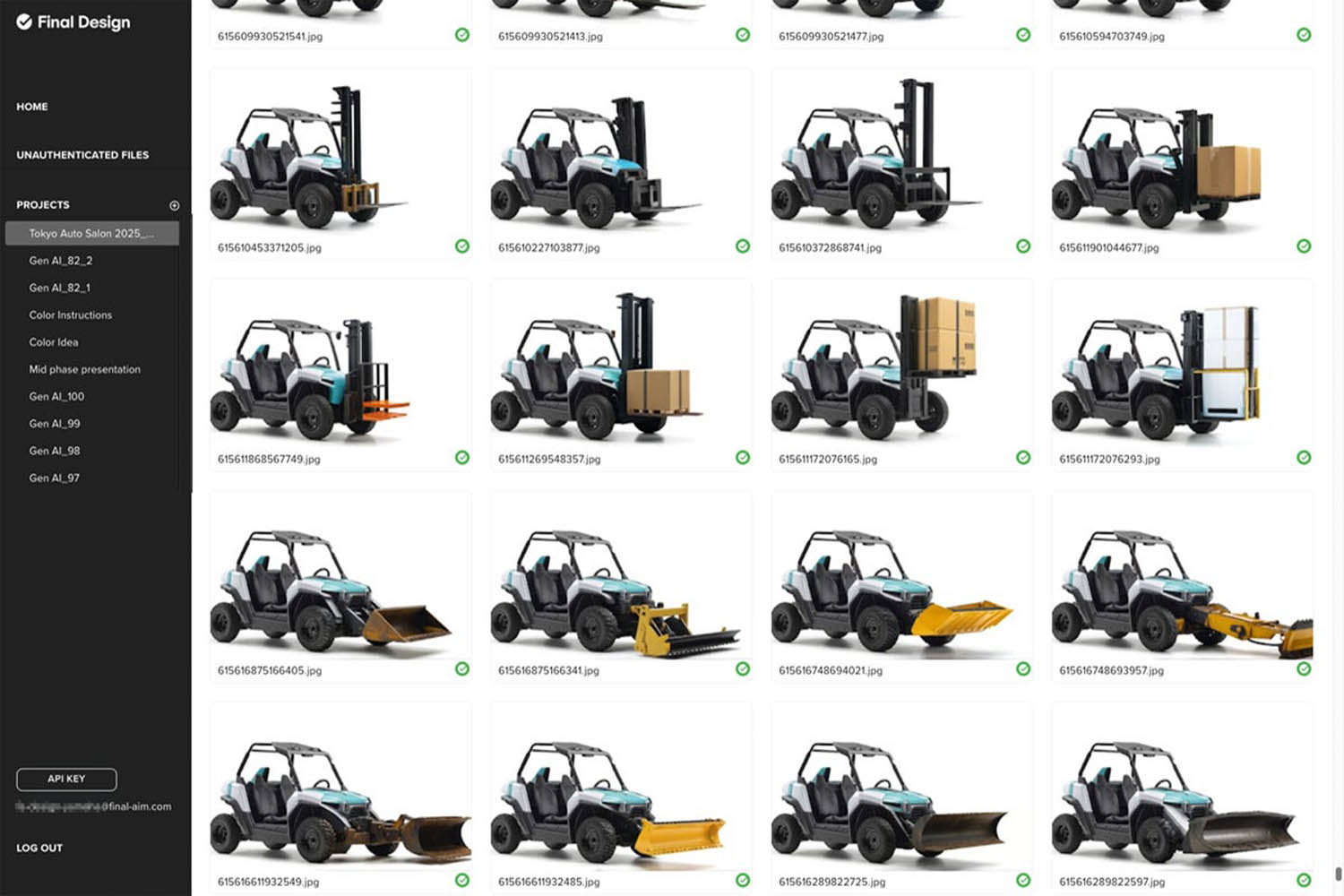At Yamaha Motors, a proprietary smart contract tool from Final Aim is helping to keep the company’s intellectual property and creative designs safe from unauthorised use or outright theft
In the huge halls of the Tokyo Auto Salon, Yamaha Motors has just unveiled its latest concept, the Diapason C580, to an eager crowd. An agile, lowspeed electric platform, the versatile design means the vehicle can be customised to carry two passengers over a wide range of terrain from forest floors and farmland to factory complexes and even residential communities.
One version of the C580, in full utilitarian guise and equipped with a dozer mounted on the front and a trailer packed with work tools at the rear, stands in startling contrast next to Yamaha’s latest design for the futuristic Lola Yamaha ABT Formula E Team race car. Another C580 is showcased as a luxury, off-road leisure vehicle.
At the Tokyo Auto Salon, the Japanese equivalent of the US’s SEMA auto show, customisation is a big trend and the C580 offers a concept that goes beyond ‘just’ cars, paving the way for next-generation mobility design.
The group behind the Diapason C580 concept is Yamaha Motor’s new business development division. This is set on uncovering new niche markets, with the C580 following on from 2024’s agriculture-focused Concept 451.
This division is in the process of further developing the brand’s use of AI in generating new concepts. The Concept 451, for example, featured generative AI at the heart of its development work, with creatives, decision makers and manufacturers all brought in on the process of using AI to accelerate ideation.
This exercise saw over 2,000 design concepts generated, while also helping to shorten design cycles. However, creating so many designs, all with unique details and potential, posed a new challenge: How does Yamaha best protect its highly valuable intellectual property (IP)?
To help with the process Yamaha brought in Final Aim to help develop the design and use its expertise in generative AI, including its proprietary smart contract tool, Final Design.
Fast forward to the show floor of Tokyo Auto Salon in 2025 and Final Aim was again brought in to assist Yamaha’s team with the C580. In the year since the initial unveiling of its low-speed EV platform, Yamaha had identified several niche applications where the tool could be utilised, using generative AI to help create concept designs to fit the needs of eight new markets.

Double-edged sword
Final Aim was founded in 2019 by serial entrepreneur Masafumi Asakura and ex-Nikon designer Yasuhide Yokoi. By 2022, the company had established its headquarters in the US, joining the Berkeley SkyDeck start-up accelerator.
What the Final Aim co-founders recognised was how generative AI tools present a fascinating double-edged sword for creativity. In short, AI can massively amplify and augment capabilities, but also present challenges around the ownership of a design.
AI aside, there are many issues around IP to which designers can relate, like having seen their designs used without permission and being left powerless because they weren’t prepared for that scenario.
“Designers almost never think about IP until they have to – whether that’s as simple as doing the client handoff, sharing out for revisions, or in a worst case scenario, where they’ve got to take some legal action,” says Pooria Sohi, Final Aim’s marketing director.
“If you’re a freelancer, you might be using a cloud drive to back your data up. If you’re a full-blown ID Studio, you might be doing some kind of encryption, but that’s really the beginning and the end of it.”
Final Aim sees the adoption of blockchain-based smart contracts technologies across design and manufacturing as a means of overcoming these issues.
Its platform, Final Design, proposes a single source of truth for essential data, from design files to legal contracts and IP documents. Securely authenticated and stored in a traceable, tamper-proof format, it offers project managers oversight and control, while automatically assigning IP to work, tracking versions and keeping updates secure, from early sketches to final production files.
“The way that the system works is that every time you upload your data to the platform, the system triggers a smart contract to securely log it on the blockchain,” explains Sohi. “We have done this in conjunction with lawyers and it’s been reviewed internationally at a bunch of different law firms to make sure that this actually holds water in the worst case scenario, which is needed to contest that the intellectual property is yours.”
He adds that this is pertinent to other applications, from something as simple as packaging up and handing over designs to your client; giving temporary access for revision control; or simply letting someone look at your work. It’s an issue even for freelancers, wanting to showcase their work online without having to worry about another company coming and taking it.

Keep it private
Generative AI, and the thousands of concepts it can generate in mere seconds, adds even more layers to the issues around protecting IP. If you’re using a private server and you’re doing it privately, asks Sohi, how do you then assign ownership? “That is the question we’re answering,” he smiles.
Sohi gives the example of the US government’s plans to deregulate AI as an example scenario where companies and designers are realising they need a better way to protect their work.
“For creatives, that presents a significant problem, because how do you demonstrate IP ownership? How do you demonstrate that something you’ve created is humanmade and not AI-made? And then how do you embrace both AI and traditional technologies to use them both?”
By leveraging Final Aim’s Final Design platform, Yamaha was able to explore how generative AI can supercharge product customisation, scene visualisation and creative video content for concept promotion. The exercise highlighted over 20 categories of customisation ideas, generated over 2,500 design images, and led to nine final concepts and AI-generated videos – all with the peace of mind that all this information is recorded and safeguarded as Yamaha IP.
By helping produce these visual narratives for potential use cases, the tools have helped rapidly ideate designs for new markets and bring multiple concepts to life, not only for internal development, but also in front of an audience of thousands, giving direct feedback at a show like the Tokyo Auto Salon.
By keeping the IP safe, designers can open up projects to the public earlier, helping them get to a desirable end product faster.
This article first appeared in DEVELOP3D Magazine
DEVELOP3D is a publication dedicated to product design + development, from concept to manufacture and the technologies behind it all.
To receive the physical publication or digital issue free, as well as exclusive news and offers, subscribe to DEVELOP3D Magazine here






